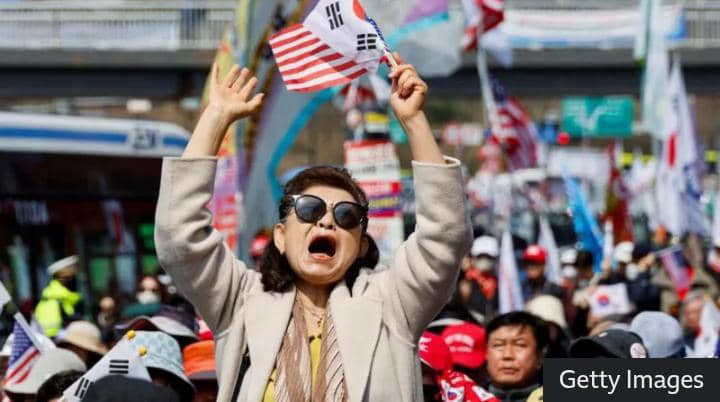South Korea’s Constitutional Court has unanimously upheld the impeachment of President Yoon Suk Yeol, officially removing him from office.
This historic decision comes after months of intense political crisis sparked by Yoon’s attempted imposition of martial law in December.
The ruling was met with a mix of emotions from Yoon’s supporters and critics, who gathered in various parts of Seoul to watch the verdict live. Many South Koreans expressed relief and celebrated the decision as a victory for democracy, while others showed sadness and anger.
A snap election to elect Yoon’s replacement must be held by June 3, marking a critical turning point for South Korea’s future.
The country is now more polarized than ever, with many South Koreans still reeling from the aftermath of Yoon’s actions.
The Constitutional Court’s decision emphasized the need to strengthen institutions and limit presidential powers to prevent similar crises in the future.
However, implementing such changes will require a concerted effort from future leaders.
Yoon’s legacy is marked by controversy, particularly his unsubstantiated claims of North Korean and Chinese espionage infiltrating the government and opposition.
These conspiracy theories have taken root, fueling far-right extremism and protests in Seoul.
As South Korea navigates this uncertain period, it must address pressing issues, including a looming economic crisis and tensions with North Korea. The upcoming election will be a crucial test for South Korea’s democracy, as the country seeks to heal and move forward.
The international community, particularly the United States, will be watching closely as South Korea charts its course.
President Trump’s administration has already imposed tariffs on South Korean goods, and further economic pressures may be on the horizon.


